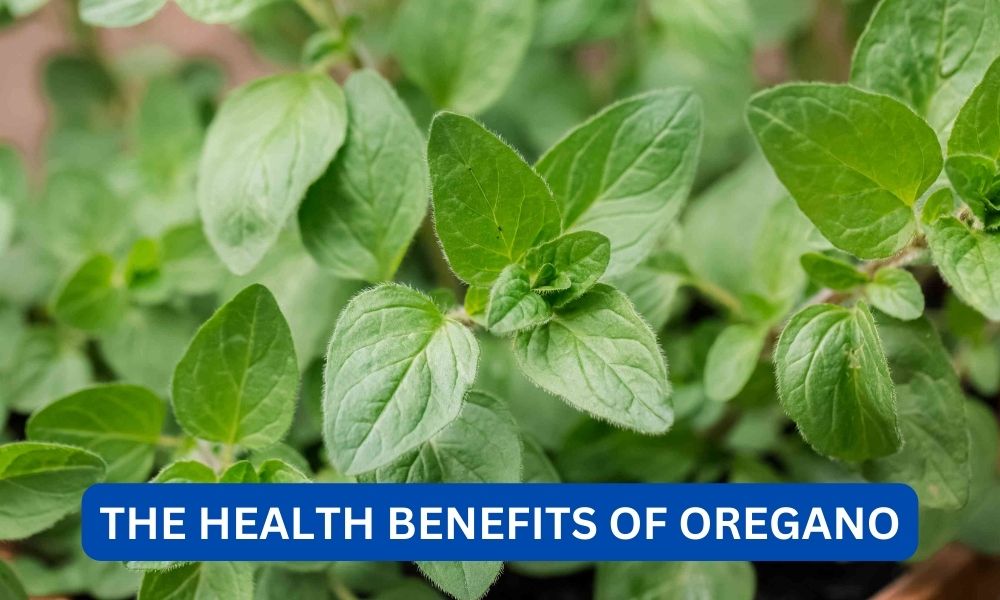Oregano, also known as Origanum vulgare, is a popular herb that is commonly used in cooking. It is native to the Mediterranean region and has been used for centuries for its medicinal properties. In recent years, oregano has gained attention for its potential health benefits, making it a staple in many households. In this article, we will delve into the various health benefits of oregano and explore how this humble herb can improve our overall well-being.
Contents
What is Oregano?
Oregano is a perennial herb that belongs to the mint family. It is a small shrub with dark green leaves and purple flowers. The leaves of the oregano plant are the most commonly used part, either fresh or dried, for culinary and medicinal purposes. Oregano has a strong, pungent flavor and is often used in Italian, Greek, and Mediterranean cuisines.
Aside from its culinary uses, oregano has a long history of medicinal use. The ancient Greeks and Romans used it to treat a variety of ailments, including respiratory and digestive issues. In traditional medicine, oregano was also used to relieve pain, inflammation, and infections.
Health Benefits of Oregano
Oregano is a rich source of antioxidants, vitamins, and minerals, making it a potent herb with numerous health benefits. Let’s take a closer look at some of the ways oregano can improve our health.
Read:What are the benefits of mushrooms?1. Boosts Immunity
Oregano is packed with antioxidants, which help protect our cells from damage caused by free radicals. Free radicals are unstable molecules that can cause oxidative stress, leading to chronic diseases such as cancer, heart disease, and diabetes. Oregano contains compounds like rosmarinic acid, thymol, and carvacrol, which have strong antioxidant properties.
Moreover, oregano is also rich in vitamin C, which is essential for a healthy immune system. Vitamin C helps stimulate the production of white blood cells, which are responsible for fighting off infections and diseases. A study published in the Journal of Agricultural and Food Chemistry found that oregano has one of the highest antioxidant activity among herbs, making it a powerful immune booster.
2. Anti-inflammatory Properties
Inflammation is a natural response of the body to injury or infection. However, chronic inflammation can lead to various health problems, including heart disease, arthritis, and cancer. Oregano contains compounds like carvacrol and thymol, which have anti-inflammatory properties. These compounds inhibit the production of inflammatory enzymes, reducing inflammation in the body.
A study published in the Journal of Medicinal Food found that oregano extract significantly reduced inflammation in mice with colitis, a type of inflammatory bowel disease. Another study published in the Journal of Natural Products found that oregano extract inhibited the production of inflammatory cytokines in human cells.
Read:What are the benefits of liquid chlorophyll?3. Fights Bacterial Infections
Oregano has been used for centuries to treat bacterial infections. Its antibacterial properties are attributed to the compounds carvacrol and thymol, which have been found to be effective against a wide range of bacteria, including E. coli, Salmonella, and Staphylococcus aureus.
A study published in the Journal of Applied Microbiology found that oregano essential oil was effective against 41 strains of bacteria, including antibiotic-resistant strains. Another study published in the Journal of Food Science found that oregano oil was effective in inhibiting the growth of bacteria in food, making it a natural food preservative.
4. May Help Manage Diabetes
Oregano may also have potential benefits for people with diabetes. A study published in the Journal of Natural Medicines found that oregano extract helped reduce blood sugar levels in diabetic rats. The study also found that oregano extract improved insulin sensitivity, which is essential for managing diabetes.
Moreover, oregano is also rich in polyphenols, which have been found to have anti-diabetic properties. A study published in the Journal of Agricultural and Food Chemistry found that oregano extract improved insulin sensitivity and reduced blood sugar levels in diabetic mice.
Read:What are the benefits of collagen peptides?5. Improves Digestive Health
Oregano has been traditionally used to treat digestive issues such as bloating, gas, and indigestion. Its carminative properties help relieve gas and bloating, while its anti-inflammatory properties can help soothe an upset stomach. Oregano also contains compounds that can help fight off harmful bacteria in the gut, promoting a healthy balance of gut bacteria.
A study published in the Journal of Medicinal Food found that oregano extract helped reduce symptoms of indigestion, including bloating and abdominal pain. Another study published in the Journal of Applied Microbiology found that oregano essential oil was effective against harmful bacteria in the gut, including H. pylori, which is responsible for stomach ulcers.
6. May Have Anti-Cancer Properties
Oregano contains compounds that have been found to have anti-cancer properties. Carvacrol, one of the main compounds in oregano, has been found to induce cell death in cancer cells. A study published in the Journal of Medicinal Food found that oregano extract inhibited the growth of breast cancer cells.
Moreover, oregano also contains rosmarinic acid, which has been found to have anti-tumor properties. A study published in the Journal of Natural Products found that rosmarinic acid inhibited the growth of colon cancer cells.
How to Incorporate Oregano into Your Diet
Oregano is a versatile herb that can be used in various dishes. Here are some ways to incorporate oregano into your diet:
- Add fresh or dried oregano to your pasta sauce, pizza, or salad dressing for a burst of flavor.
- Make a cup of oregano tea by steeping fresh or dried oregano leaves in hot water for 5-10 minutes.
- Use oregano essential oil in cooking or add a few drops to a carrier oil for a massage oil.
- Make a homemade oregano oil by infusing dried oregano leaves in olive oil for a few weeks.
Precautions and Side Effects
While oregano is generally safe for consumption, there are a few precautions to keep in mind:
- Oregano may interact with certain medications, such as blood thinners and diabetes medications. Consult with your doctor before consuming oregano if you are taking any medications.
- People with allergies to mint, basil, sage, or lavender may also be allergic to oregano.
- Consuming large amounts of oregano may cause stomach upset, so it is best to use it in moderation.
Conclusion:
Oregano is more than just a flavorful herb; it is a powerhouse of nutrients and compounds that can benefit our health in various ways. From boosting immunity to fighting off infections and managing chronic diseases, oregano has proven to be a valuable addition to our diet. So, the next time you reach for oregano in your spice cabinet, remember its potential health benefits and use it to add flavor and nutrition to your meals.









